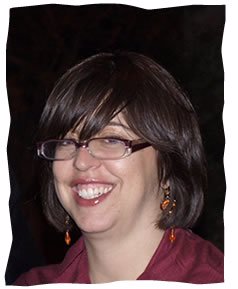
One of the most transformative times of my life was my junior year in college, when I studied abroad in Israel. It was not an easy year—actually, one of the most difficult of my life—but, as often happens, hard and life-changing often go hand in hand.
Towards the end of that year, during which I managed to immerse myself in just about everything other than Judaism, I was introduced to Rabbi Shlomo and Rivka Marga Gestetner. They had recently moved to Israel from the States, and had opened up a Chabad House in the Old City of Jerusalem. While I most certainly knew that rabbis, rebbetzins and I didn’t mix, I reluctantly agreed to meet them, as my close friend assured me she was an excellent cook, and my stomach overruled most moral or other ethical dilemmas I might have had.
My stomach overruled most moral or other ethical dilemmas I might have hadA tremendous cook she most definitely was (and is), and it didn’t hurt that as I entered the apartment, her then-one-year-old toddled over to me and reached his arms out. It was love at first sight. I was hooked. Over the next few months I became somewhat of a permanent fixture in their modest apartment. So much so that when my academic year came to a close, they offered me a place to live with them in exchange for helping with their two adorable children. Hmmm, live in the Old City of Jerusalem, eat incredible food, take care of children I adore, and get to hang out with the coolest “religious” couple I had ever met. Yeah, that worked.
So, in I moved, and as each day passed I absorbed more and more. Unlike what any classroom or textbook could offer me, I was living an authentic Jewish life with two extremely talented teachers. Everything they did was followed by a question from me as to why, what reason, and what meaning it held. From the practicalities of cooking and keeping a kosher kitchen to the mysticism and esoterica of the customs, I was a sponge.
I watched in awe as they taught classes, ran programs and hosted dozens upon dozens of people for Shabbat meals, and often meals throughout the week. And, of course, there were the endless hours of counseling they provided for those in need, and lending a hand for whatever else was going on. It didn’t take long for me to recognize that I was living with Superman and Superwoman. And I liked it.
When the fall came, it was time for me to return to the States and resume my undergraduate degree, and the Gestetners were also flying back to the States for a family wedding. We decided that I would fly with them, spend the holidays in Crown Heights, and learn a bit in yeshivah before returning to California. So, together we flew, and arrived at the beautiful home of Rivka Marga’s parents in New York. After just a few hours, I turned around and found Rivka Marga collapsed on the couch. Not only exhausted from travel, she had clearly come down with something.
As the days passed, I watched her as her mother cared for her, and she did . . . nothing. She was being pampered, and was enjoying every minute of it. Friends of hers would come by to visit, and she would laugh with them and share stories like a teenager. She lounged around in pajamas eating ice cream. I was in shock. Where was Superwoman? Where was the powerhouse woman I knew and admired? Was it possible, conceivable, that in fact she was . . . human?
To a certain extent, my world came crashing downTo a certain extent, my world came crashing down. I had built her up to such an ideal that I had to come to terms with the fact that in addition to being my mentor and role model, she was also a daughter, sister, friend and young woman herself. But the very same thing that disappointed me gave me a sense of strength and purpose as well. If she could be “normal” and also capable of so much, then maybe I had that potential as well?!
Over the years I realized that the world is filled with Rivka Margas. Each one unique and individual, but amazing women who accomplish tremendous feats in sometimes extremely challenging situations. If you are reading this, you most likely have been to a Chabad House. If not, get yourself to one, and you will be blown away by what the couple running it manages to do. If it is running a school or leading a congregation or caring for the daily needs of their community, those who run Chabad Houses are nothing less than supermen and superwomen. No matter where you go in the world, from the large Jewish communities of Los Angeles to the barely existing ones of New Zealand or India, you can find a Chabad House.
But here is the best part.
They were not born supermen and superwomen. They were born regular people. They are regular people. But they are capable of remarkable things. How? Because they have a sense of purpose and mission, and the knowledge to act on it. They prove that when we devote ourselves to something we are passionate about, we are capable of more than we could ever imagine.
It is now the annual Kinus HaShluchos in Crown Heights, New York. Once a year, all of the women who run Chabad Houses around the world gather together for a long weekend of rejuvenation and inspiration. During these days they get to visit family, hang out with friends, eat food they didn’t have to cook, and attend rather than teach classes.
They are regular people. But they are capable of remarkable thingsI look around and I see thousands of ordinary women enjoying themselves and this precious yearly vacation. Not until I look at their nametag do I realize where they live. Most of the time I have never heard of the place, as they explain that it is a remote town in Brazil or Russia or someplace else I have never been and probably will never go. And then they are off, squealing as they hug a friend they haven’t seen in years.
Ordinary women who live extraordinary lives.
In just a few more days they will return to the place they now call home. Because they made it their home. Because they chose to move there, knowing they had something they could accomplish. Because the superwoman is not always who you are, but who you allow yourself to become.





